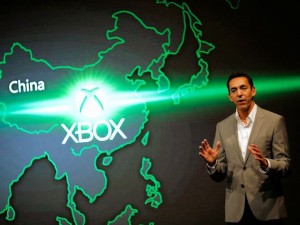Yesterday, Microsoft finally launched its gaming console, the Xbox One, in mainland China, and became the first major gaming console maker to enter this market with a huge potential.
This launch is made possible by a change in Chinese policy of gaming consoles in the beginning of this year. In January, China lifted its 14-year-ban on consoles, exposing its lucrative market to both local and foreign console makers with some control over game contents. Both Microsoft and Sony soon showed their interest, but clearly Microsoft is now ahead of the game.
In other markets, Sony’s PS4 has always dominated the #1 place of consoles as customers have enough information to know that it is selling with a higher specification at a lower price than Microsoft’s Xbox. However, Chinese consumers have less information due to its prohibition of consoles, and so far the demand of consoles is only met by those sold in black markets. This gap of product information between producers and customers creates a great chance for Microsoft to overcome Sony in sales in the Chinese Market.
This is a typical example of positioning, which as we learnt can be described as ‘the battle for consumers’ minds’. Microsoft now equate itself to the first console in the Chinese market, and heavy advertisements already appears on the media as it tries to use its time-in-advance advantage to occupy Chinese consumers’ minds, which are not yet overloaded or influenced by its competitors, thus to create the perception of Microsoft being a leader in the Chinese console market.
Work Cited: “Microsoft Beats Sony to China Launch.” BBC News. N.p., 29 Sept. 2014. Web. 30 Sept. 2014.
Link: http://www.bbc.com/news/technology-29410358



